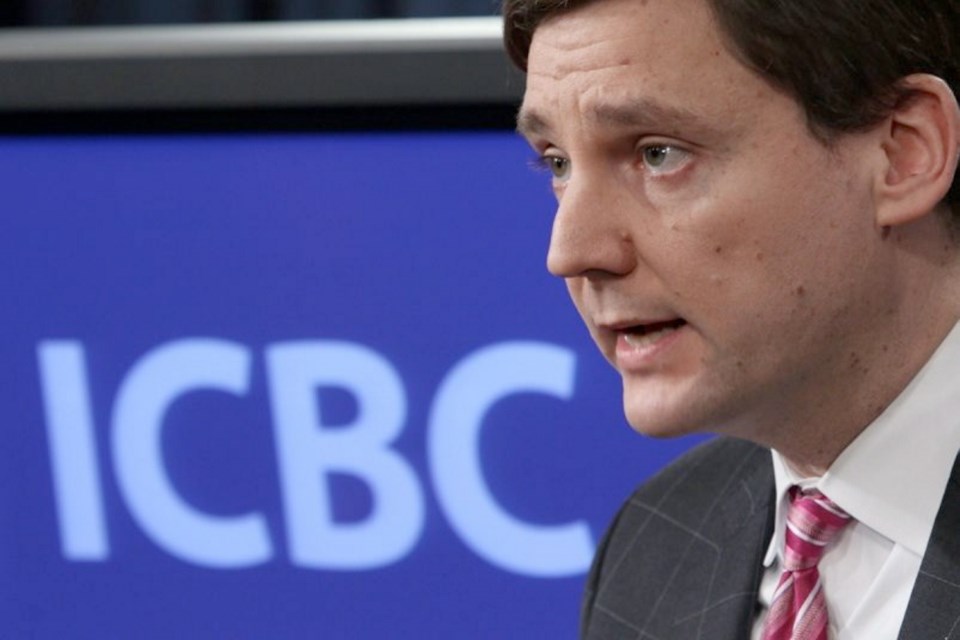 ICBC achieved rock-star notoriety in the NDP government’s budget this week. The Crown corporation appeared for the first time in the top-line summary of the provincial books.
ICBC achieved rock-star notoriety in the NDP government’s budget this week. The Crown corporation appeared for the first time in the top-line summary of the provincial books.
It’s usually tucked in the more obscure parts of the provincial budget. But it’s losing so much money, it now warrants a standalone line in the main rundown. In fact, the first line on page one of the three-year fiscal plan is: “Revenue before ICBC impacts.”
The NDP is re-formatting the books so that what Attorney General David Eby described as the ICBC “dumpster fire” glows all by itself for all to see. They’re trying to put it out, of course, with all the insurance-policy changes announced this year to curtail legal costs.
But the redesign of the ledger shows they want it to burn as brightly as possible in the meantime, as a lesson to us all about the incompetence of the previous government. A few pages further in, there’s a rundown of Crown corporation performance that comes with the phrase “excluding ICBC.”
They’re isolating it from B.C. Hydro, B.C. Lottery and the liquor branch money-makers because it would drag all the others down. That’s like being in Olympic team figure skating and having your marks thrown out by your own coach.
The new format projects that the B.C. surplus this coming fiscal year would be $903 million. But the “ICBC impact” drives it down to just $219 million. The subtext is: “Thanks for nothing, B.C. Liberals.”
There are also accounting reasons to break out the ICBC impact separately. But the political effect will be welcomed by the NDP because it itemizes a cost that can squarely be blamed on the previous government.
The three-year plan shows two more years of ICBC losses in the $800- to $900-million range, gradually mitigated by the insurance-coverage restrictions that will be taking effect.
It’s quite a contrast from the last Liberal budget. One year ago, former finance minister Mike de Jong’s budget didn’t get to ICBC until 10 pages in, where there was a reassuring reference to “lower losses expected at ICBC.”
It pegged losses at $396 million for the year just ending, but said that would drop to an average of $104 million a year for the next three years, subject to savings to come following an independent review.
So much for budget projections. Buried much deeper in that last Liberal budget was an admission that they were way off in their earlier projections. A running tally of projections over that year showed ICBC was a half-billion dollars worse off than the government was estimating.
There were two budgets by two different governments 364 days apart. The first one says in the fine print that ICBC is losing money, but they’re getting it under control. The second one plasters the corporation on the first page and says it “has become a key risk to the province’s fiscal plan.”
If you fell asleep after the Liberal budget and woke up just in time to read the NDP one, you’d think a sudden catastrophe must have struck. It’s more a matter of a series of costs that started climbing in 2010 that the Liberals didn’t want to confront head-on (with big rate hikes). So they spent a few years hoping they would go away, while they continued extracting “dividends” from the bleeding corporation.
Meanwhile, the problems got worse. The previous government was just getting its mind around the idea that ICBC was in crisis by last year. It discussed some fixes, selectively dismissed ones it didn’t want to hear and was pondering others when power changed hands.
The NDP took over as the crisis became obvious to all. They might be overstating things a bit. They’re forecasting a $1.3-billion loss this year, based partly on older small claims turning into big ones.
But all the above shows projections can be hit or miss.
The more fundamental problem is a crash rate that started climbing dramatically about eight years ago. All the political manoeuvring is about a problem that’s out on the roads. The best way to avoid shocking rate hikes — and remove “ICBC impacts” from the first page of the budget — is through safer driving.



